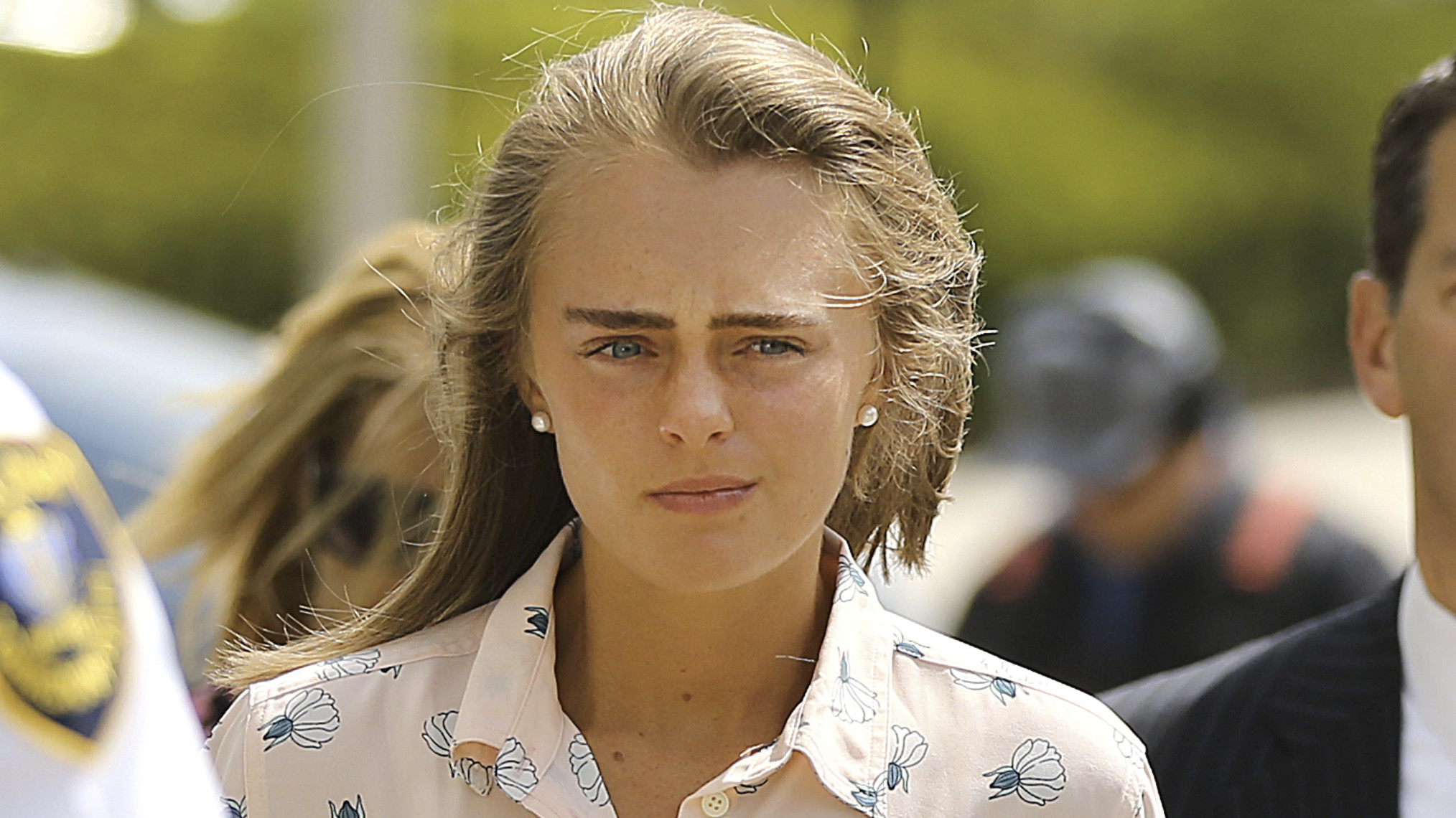Imagine receiving a text message from your boyfriend, telling you he’s sitting in his truck, exhaust fumes filling the cabin, and you’re the last person he wants to talk to before he takes his own life. This chilling scenario played out in Plainville, Massachusetts, in 2014, and it became a landmark case in the age of social media. The story of Michelle Carter, Conrad Roy III, and the Facebook messages that brought them together and ultimately tore them apart continues to captivate and disturb us.

Image: nypost.com
The case of Michelle Carter is unique for its exploration of the complex relationship between social media, mental health, and criminal culpability. In the digital age, our conversations can be archived, scrutinized, and used in a courtroom to paint a chilling picture of events that transpired. In Carter’s case, the sheer volume of text messages, emails, and Facebook interactions provided a window into the tumultuous relationship, revealing her actions and words that were ultimately found to be criminally culpable in the death of her then-boyfriend, Conrad Roy III.
The Tragedy in Plainville
Conrad Roy III, a young man struggling with depression and suicidal thoughts, was known to his friends and family as a kind and sensitive individual. He had a history of mental health challenges, and in July of 2014, he reached a breaking point. As his internal struggles intensified, he reached out to Michelle Carter, who he had been in an on-again, off-again relationship with for several years.
The Role of Facebook Messages
Over the course of several months, Carter and Roy communicated extensively through text messages, emails, and Facebook Messenger. These digital breadcrumbs were later used by prosecutors to demonstrate Carter’s alleged influence on Roy’s decision to take his own life. In the weeks leading up to his death, the tone of their communications shifted. Carter was aware of Roy’s suicidal thoughts, and in some instances, she seemed to encourage his self-destructive behavior.
The “Get Back in” Text
The most damning piece of evidence against Carter was a text message she sent to Roy, who had climbed back out of his truck just before taking his life, telling him to “get back in.” This message, in conjunction with other messages in which Carter urged Roy to stop delaying his suicide, ultimately proved to be pivotal in her conviction.

Image: www.tvinsider.com
The Legal Battle: Charges and Convictions
The case against Michelle Carter quickly became a national controversy. Carter was initially charged with involuntary manslaughter, a charge that sparked significant debate around the boundaries of criminal liability in the digital age. While Carter’s legal team argued that her words were simply expressions of concern and support, the prosecution argued that her actions amounted to encouraging and enabling suicide.
In 2017, Carter was found guilty of involuntary manslaughter and sentenced to 15 months in prison. The judge in the case, a seasoned jurist with a reputation for fairness, delivered a scathing verdict, stating that Carter had “convinced Conrad Roy to kill himself” through a series of text messages and phone calls.
The Aftermath: Social Media and Mental Health
The Michelle Carter case had a profound impact on the way we think about social media and its potential role in shaping mental health. The case raised important questions about the responsibilities of individuals who have access to information and influence over others, particularly when it comes to sensitive issues like mental health and suicide.
The case also highlighted the complexities of cyberbullying and online harassment, demonstrating the potential for words and actions in the digital realm to cause real-world harm. The case served as a potent reminder that even virtual interactions can have devastating consequences, underscoring the importance of responsible online behavior.
Michelle Carter Today
Carter served a part of her sentence and was released on parole in 2019. Her case has been extensively analyzed by legal scholars, psychologists, and social commentators. Her story has been featured in numerous documentaries, podcasts, and television shows, adding fuel to the ongoing national debate about the ethics of online communication and the blurred lines between free speech, manipulation, and criminal culpability.
Michelle Carter Plainville Ma Facebook
Key Takeaways from the Michelle Carter Case
The Michelle Carter case has served as a wake-up call for society, prompting us to confront the ethical and legal challenges posed by social media in the 21st century. Here are some key takeaways:
-
The Power of Words: The case illustrates how powerful our words can be, especially in the digital realm. Even seemingly innocuous messages can have a profound impact on others, and we have a responsibility to use our words wisely.
-
The Importance of Mental Health Awareness: Carter’s case highlighted the importance of mental health awareness and the need for adequate support systems for individuals struggling with depression, suicidal thoughts, and other mental health issues.
-
The Digital Footprint and Criminal Liability: The case also serves as a reminder of the permanence of our digital footprints. Everything we write, share, and post online can be accessed and used in a court of law, so we must be mindful of our actions and potential consequences.
-
The Role of Social Media in Suicide Prevention: The case has generated a broader conversation about suicide prevention and the role of social media in supporting individuals at risk. There’s a growing recognition of the need for social media platforms to integrate tools and resources to prevent suicide and help those in need.
The Michelle Carter case remains a subject of intense debate and scrutiny. It serves as a potent reminder of the fragile balance between our right to freedom of expression and the potential harm our words can inflict upon others, especially in the context of mental health. The case continues to generate important conversations about digital ethics, mental health awareness, and the evolving nature of criminal culpability in the age of social media.





